Healthcare: GX Glass
GX Glass manufactures, supplies and installs made to measure and bespoke flat glass products for furniture, and contract and commercial fit-out projects. Design Insider is delighted to share GX Glass discuss glass in Healthcare environments.
Use our hashtag – #HealthcareDI
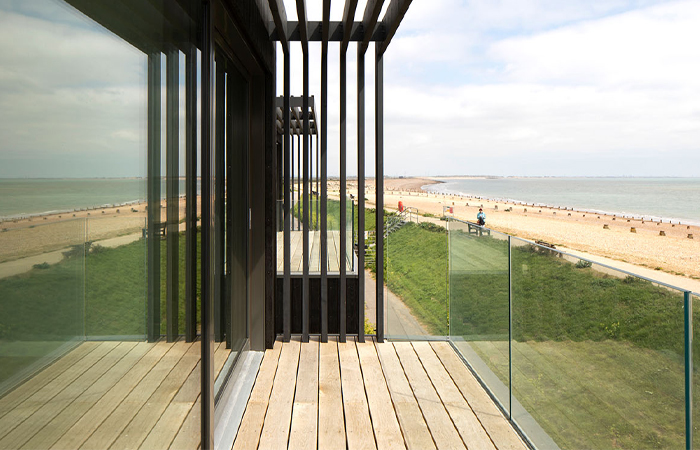
Infection Control: Glass in Healthcare Environments
Infection control measures are crucial in healthcare settings to prevent the spread of healthcare-associated infections (HCAIs) such as MRSA. It is estimated that 300,000 patients a year in England acquire a healthcare associated infection as a result of care within the NHS* – which can result in increased patient discomfort, risk to patient safety, a requirement for additional care resources and increased patient mortality.
Critical to preventing the spread of infection is ensuring surfaces in a healthcare setting are cleaned regularly. One strategy that helps achieve this is to use engineering control to make sure every surface is easy to keep clean and, where possible, is antibacterial.
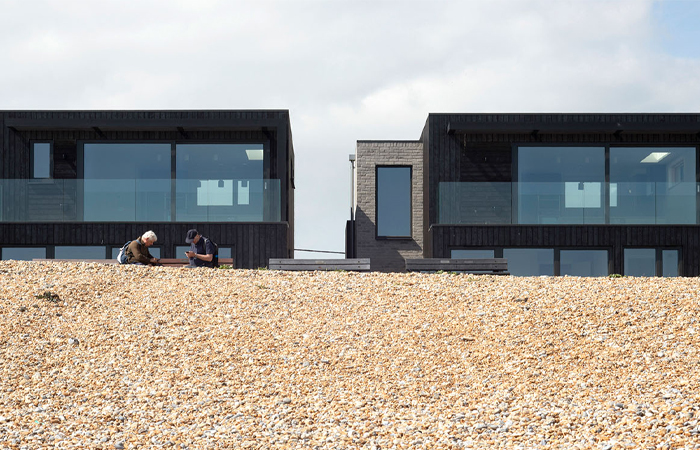
How can glass help prevent the spread of infections?
Glass is a durable, waterproof and non-porous material which makes it easy to keep clean. This also means that bacteria is unable to penetrate its surface, so it can be easily disinfected.
Whilst glass surfaces are non-porous, there are also specific glass products that have been designed for healthcare settings like Antibacterial glass, made with silver ions which help to eliminate 99% of bacteria that may accumulate on its surface, helping to prevent the spread of infection.
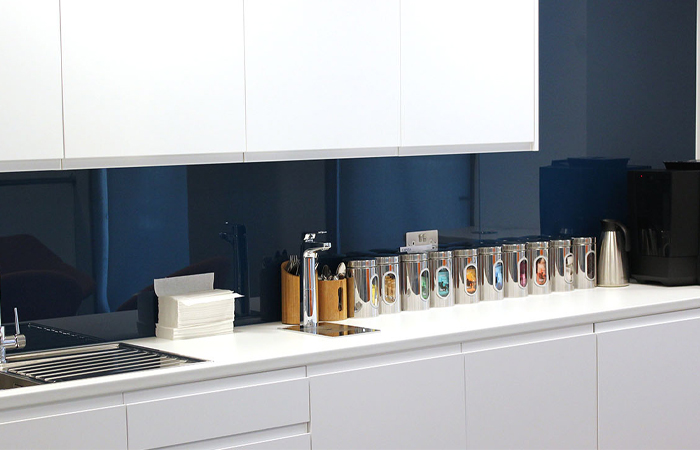
How can glass be used in a healthcare setting?
Glass is a cost-effective material, which is often a deciding factor for many healthcare providers and their trusts. Glass is also a product which can be retrofitted as part of refurbishments where older materials are at the end of their life cycle, either as a replacement or to cover existing surfaces permanently.
For example, if a reception desk area has an older, porous worktop that is difficult to clean, instead of replacing the whole reception desk, the worktop could be replaced with a glass top or over clad. This would make the area easier to keep clean, helping to prevent the spread of infection to staff, patients, and visitors.
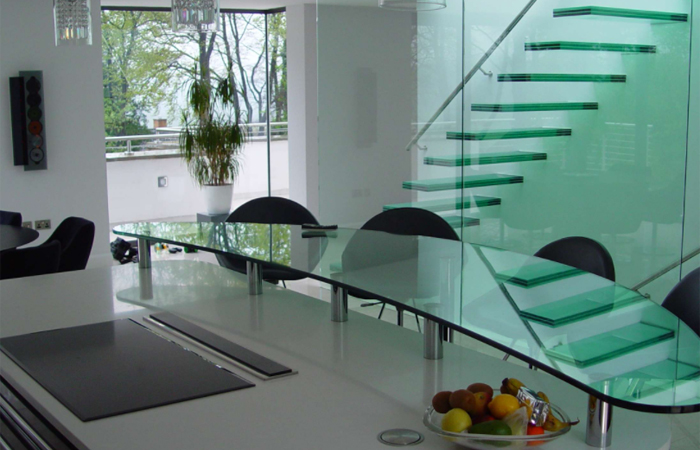
The additional benefits of using glass are that it can be processed to a huge range of sizes, thicknesses, colours and shapes, making it perfect for those looking to make an area more hygienic without the need to change in-built furnishings, and even add a splash of colour.
Glass can also be used to replace traditional materials such as hospital privacy curtains. The Health and Social Care Act 2008 infection guidance states that curtains and blinds should be visibly clean, and organisations should have controls and schedules in place for keeping these types of fixtures and fittings clean. It can be costly and time-consuming to continually wash fabric curtains, and if not carried out frequently enough they can harbour infection. Research published in the American Journal of Infection Control (AJIC) found that by day fourteen, 87.5% of 10 hospital curtains placed in patient rooms tested positive for MRSA
Many hospitals are now installing glass partitions and privacy screens, instead of traditional privacy curtains to support infection control.
In order to improve their infection control in clinical settings, West Wales General Hospital is, where possible, now using switchable glass panels in its new endoscopic unit instead of traditional curtains.
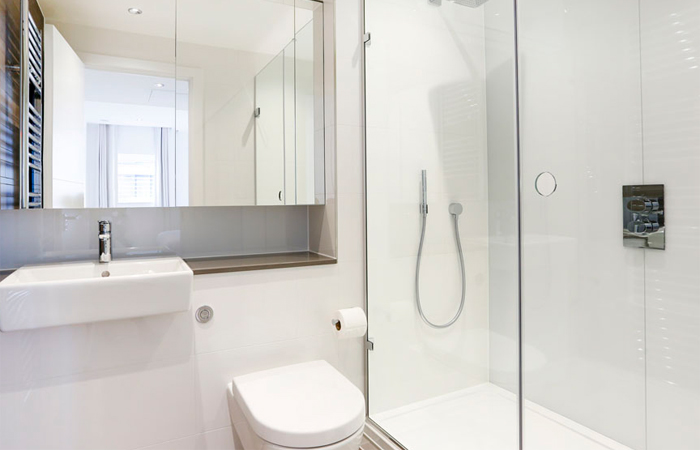
Glass and healthcare design
As well as being easy to clean, glass is also a highly versatile material that can be used to replace and upgrade elements in a healthcare setting whilst improving infection control.
Traditional whiteboards are still seen on many wards as a method for documenting which patients are in which beds, as well as shift change information. These plastic based boards degrade over time, becoming scratched and discoloured, and liable to harbour bacteria which can lead to HCAIs. These can be replaced with Glass whiteboards, which do not discolour or degrade like traditional whiteboards. As well as being as functional as traditional whiteboards, glass whiteboard panels can be customised to match an existing interior design scheme with back painting or custom printing. Glass boards also have a much longer lifecycle when properly cared for – whilst not indestructible, they will typically outlast the lifecycle of an interior design scheme – only breaking as a result of accidental impact or a failure in the surface it is attached to, which makes them a cost-effective option for the life cycle of the environment they are in.
Glass wall cladding can also be used to add colour and character to a healthcare setting, whilst still helping to support infection control. Glass cladding can be painted or printed with striking graphics, whilst remaining easy to clean and disinfect.
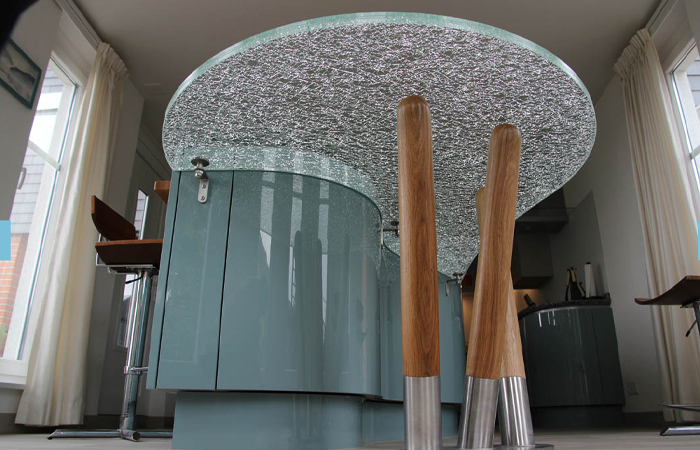
Glass consultancy for healthcare
At Gx Glass, our tagline is ‘if you can imagine it, we can create it’ and this underpins everything we do. GX Glass specialise in glass manufacturing and provide a consultancy service to help customers bring their ideas to life. They understand the complexities of interior design in healthcare environments and can help architects, designers and fitters define product specifications and samples for approval if required.
Contact GX Glass through BCFA Product Finder
The BCFA Product Finder is a unique search engine created especially for interior designers to source contract furnishing companies. Utilising this platform will support your findings for upcoming projects, with over 200 members profiles showcasing the latest product launches, new materials available, industry news and design trends.




